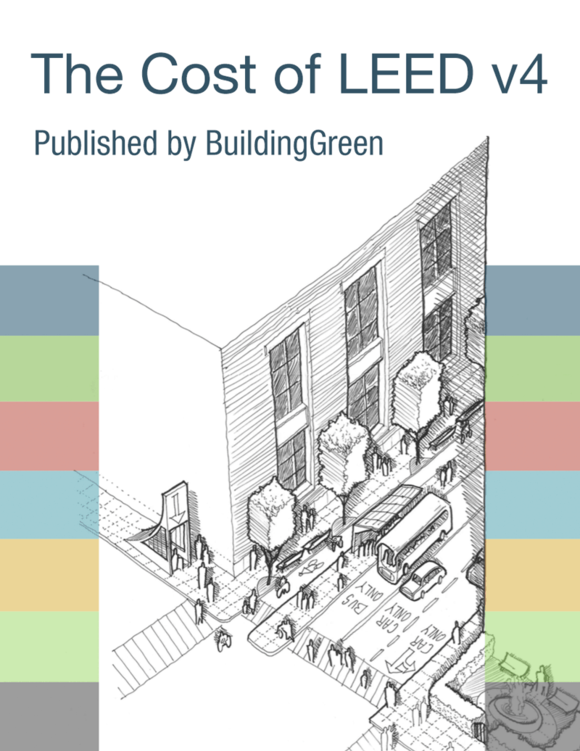Mid-Rise-v4 SSp1: Construction activity pollution prevention Required
LEEDuser overview
Explore this LEED credit
Post your questions on this credit in the forum, and click on the credit language tab to review to the LEED requirements.
Credit language

© Copyright U.S. Green Building Council, Inc. All rights reserved.
Intent
To reduce pollution from construction activities by controlling soil erosion, waterway sedimentation, and airborne dust.
Requirements
Stockpile and protect disturbed topsoil from erosion (for reuse).
Control the path and velocity of runoff with silt fencing or comparable measures.
Protect on-site storm sewer inlets, streams, and lakes with straw bales, silt fencing, silt sacks, rock filters, or comparable measures.
Provide swales to divert surface water from hillsides.
Use tiers, erosion blankets, compost blankets, filter socks, berms, or comparable measures to stabilize soils in any area with a slope of 15% (6.6:1) or more that is disturbed during construction.
Prevent air pollution from dust and particulate matter.
Construction sites larger than 1 acre must conform to the erosion and sedimentation requirements of the 2012 U.S. Environmental Protection Agency Construction General Permit or local equivalent, whichever are more stringent.
See all forum discussions about this credit »What does it cost?
Cost estimates for this credit
On each BD+C v4 credit, LEEDuser offers the wisdom of a team of architects, engineers, cost estimators, and LEED experts with hundreds of LEED projects between then. They analyzed the sustainable design strategies associated with each LEED credit, but also to assign actual costs to those strategies.
Our tab contains overall cost guidance, notes on what “soft costs” to expect, and a strategy-by-strategy breakdown of what to consider and what it might cost, in percentage premiums, actual costs, or both.
This information is also available in a full PDF download in The Cost of LEED v4 report.
Learn more about The Cost of LEED v4 »For full access, sign up now for LEEDuser Premium
Already a premium member? Log in now
Checklists
Step by step to LEED certification
LEEDuser’s checklists walk you through the key action steps you need to earn a credit, including how to avoid common pitfalls and save money.
For full access, sign up now for LEEDuser Premium
Already a premium member? Log in now
Documentation toolkit
The motherlode of cheat sheets
LEEDuser’s Documentation Toolkit is loaded with calculators to help assess credit compliance, tracking spreadsheets for materials, sample templates to help guide your narratives and LEED Online submissions, and examples of actual submissions from certified LEED projects for you to check your work against. To get your plaque, start with the right toolkit.
For full access, sign up now for LEEDuser Premium
Already a premium member? Log in now
Credit language

© Copyright U.S. Green Building Council, Inc. All rights reserved.
Intent
To reduce pollution from construction activities by controlling soil erosion, waterway sedimentation, and airborne dust.
Requirements
Stockpile and protect disturbed topsoil from erosion (for reuse).
Control the path and velocity of runoff with silt fencing or comparable measures.
Protect on-site storm sewer inlets, streams, and lakes with straw bales, silt fencing, silt sacks, rock filters, or comparable measures.
Provide swales to divert surface water from hillsides.
Use tiers, erosion blankets, compost blankets, filter socks, berms, or comparable measures to stabilize soils in any area with a slope of 15% (6.6:1) or more that is disturbed during construction.
Prevent air pollution from dust and particulate matter.
Construction sites larger than 1 acre must conform to the erosion and sedimentation requirements of the 2012 U.S. Environmental Protection Agency Construction General Permit or local equivalent, whichever are more stringent.
See all forum discussions about this credit »
